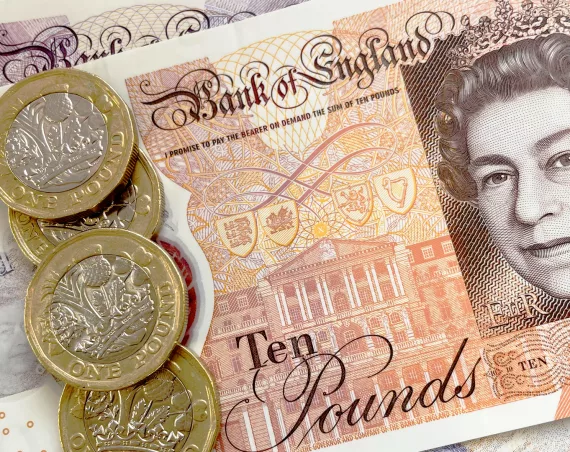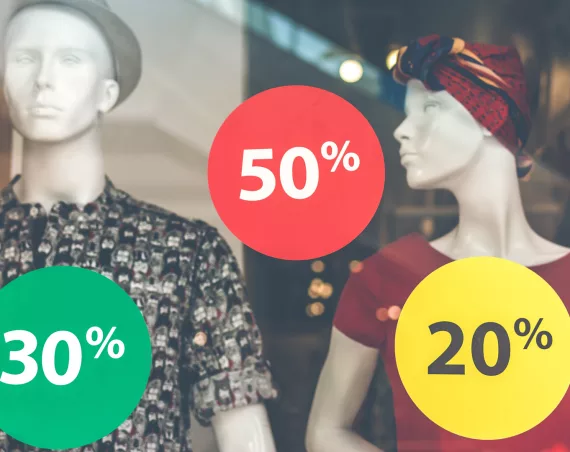
Phrasal verbs – Morning routine
Powered by RedCircle
Hello and welcome to Learn English Vocabulary. My name is Jack and I’m making this podcast for you to learn or revise English vocabulary. You can find a transcript of this podcast on LearnEnglishVocabulary.co.uk. There’s a page for this podcast with the transcript, an activity and a task for you to do in the comments section.
A while ago, I was asked if I could make some podcasts on phrasal verbs. I made a podcast on some upper intermediate phrasal verbs, but this is an A2 pre-intermediate podcast so I think that I should really cover some of the most common phrasal verbs.
Phrasal verbs
Before I go any further, what is a phrasal verb? Well, a phrasal verb is a phrase that has a verb and a preposition or an adverb or both. I think that the parts of speech are not important. There’s a verb and another word, and the meaning is different from the meaning of the parts.
So here’s an example. The verb look and the adverb up if you put them together can mean literally look at the ceiling or look at the sky. Something is going to fall on your head, look up. There is another meaning of look up. You can look up something or look something up in a dictionary or other reference book. How do you say happy in French? I don’t know. I’ll look it up in the dictionary. This is a common phrasal verb, especially for people learning a language. However, if you don’t know what the phrasal verb means, you couldn’t guess, or not easily, from the words in the phrase. There’s nothing about the adverb up that makes any sense in relation to dictionaries.
Separable phrasal verbs
Some phrasal verbs are separable. This means that you can put an object between the verb and the preposition or adverb. To look something up in a dictionary is an example of a separable phrasal verb. You can look up the word for happy in French or you can look the word for happy in French up. I don’t think that there’s any rule or even a guide for when a phrasal verb is separable or not so I think you just have to learn it with the phrasal verb.
I have been looking at some A2 books for teachers and students and have made a list of 40 A2 phrasal verbs. I can’t talk about all of them at once so I’m going to try my best to present them in some sort of context.
Today, I am going to read you a short text that I’ve written about my morning routine. I’m going to use 12 common phrasal verbs. When I read the text, I want you to try to listen to hear the phrasal verbs. Afterwards, I’ll go through the text and talk about each of the phrasal verbs that I use.
My morning routine
My alarm goes off at 7. It’s not very loud so I wake up slowly listening to the news. I normally get up at about a quarter past seven. I take my pyjamas off and jump in the shower. I love a really hot shower in the morning. It really helps me wake up. After my shower, I put my work clothes on and go down for some breakfast. I turn on the radio to listen to the news while I’m having breakfast. I usually have to turn up the volume so I can hear it when I’m making tea. I sit down with my tea and toast or cereal. I don’t like to eat standing up. Usually, I’m a bit late so I have to keep an eye on the time. I have to eat up and drink up by 8 or I’ll be late for my bus to work. When I have finished my breakfast, I stand up and put my coat on. I normally go out to work at a quarter past 8.
Did you hear all 12? Did you hear more than 12? There were a couple of phrases that might have tricked you; one was an idiom. Let’s look at the phrasal verbs one at a time.
My alarm goes off at 7
To go off has lots of meanings. If an alarm goes off, it starts to make its noise. An alarm clock can go off, a fire alarm can go off. If a bomb goes off, it explodes. If a gun goes off it fires. We normally only talk about guns going off by accident otherwise, it’s more common to use the verb shoot. One last meaning is for a machine, perhaps a vacuum cleaner or a washing machine. If it goes off, it stops working. I was hoovering the floor when the vacuum cleaner went off. It stopped working. In the text, I was talking about my alarm clock which goes off at 7.
I said:
It’s not very loud so I wake up slowly
To wake up means to stop sleeping. It can also mean to become alert. If you are feeling a bit tired and drowsy, you can say I need a coffee to wake me up. You can wake someone up. This means to cause someone to stop sleeping. I have two young boys and they often wake me up much earlier than I’d like.
I normally get up at about a quarter past seven.
To get up means to stand up and leave your bed. It’s very similar to wake up in normal speech. However you can say I woke up in the night and then went back to sleep. If you got up in the night, you’d have to go back to bed before you could go back to sleep.
I take my pyjamas off and jump in the shower.
To take something off means to remove an item of clothing. You can take a hat off or take your gloves off. You can take your glasses off if you wear them or you can take your clothes off which normally means everything you are wearing. This is a separable phrasal verb. You can take off your clothes or you can take your clothes off.
To jump in
Jump in is not an A2 phrasal verb. It’s more advanced. It means to suddenly become involved in a situation. Imagine you are at a swimming pool. You can enter the pool using the steps or you can just jump in. If you are in a meeting and you want to interrupt someone because you have some important information, you can say: can I jump in here? This means can I interrupt. If you jump in the shower, it means you are getting in the shower, but probably not literally jumping in – that would be dangerous, but you are getting in quickly.
I put my work clothes on
After my shower, I put my work clothes on and go down for some breakfast.
To put clothes on is the opposite of to take clothes off. You can put your socks on or put a uniform on or put a hat or your glasses on. This is a separable phrasal verb so you can put on clothes as well as put clothes on.
I turn on the radio
I turn on the radio to listen to the news while I’m having breakfast.
If you turn on the radio, you are starting the radio, you are making it work so you can listen to it. In the past, there would have been a large knob on most electronic devices that you would literally have to turn from the off position to the on position. My oven has a knob that you have to turn to turn it on. However, these days, you normally press a button or switch. In my kitchen, I have a voice-activated radio that I can turn on by shouting at it. This is another separable phrasal verb. You can turn the radio on or turn on the radio.
I usually have to turn up the volume
I usually have to turn up the volume so I can hear it when I’m making tea.
To turn up the volume means to make the volume louder. Again, this comes from when these devices had knobs to turn for volume and other functions. Now, there are buttons to press or I can just shout at it again. Turn up the volume.
I sit down with my tea
I sit down with my tea and toast or cereal.
To sit down means to sit on a chair or even the floor. This is really quite straight forward. You can say: I need to sit down, I’m so tired. The opposite is to stand up. Later I said: I stand up and put my coat on. This means to change position from a sitting position to a standing position.
I have to eat up and drink up by 8
To eat up or drink up means to finish the food or drink you are having. It’s quite common to use drink up if you are in a pub. Come on. Drink up, I want to go home. I don’t think to eat up is all that common, though I am a very fast eater. Do you ever tell people to finish their food?
I have to keep an eye on the time
I said I have to keep an eye on the time. This is an idiom. To keep an eye on means to watch. You normally have to keep an eye on things that might cause you problems. When I was teaching in a school there were always a few students that I had to keep an eye on or they would cause mischief. This is not a phrasal verb, but it’s a very common idiom.
I normally go out to work at a quarter past 8
The last phrasal verb I used is to go out. I normally go out to work at a quarter past 8. To go out means to leave. It’s more commonly used to talk about leaving your house to do something fun. You can go out for a drink or go out partying. You can go out for dinner at a restaurant.
OK, so there you have 12 A2 phrasal verbs that you can use to talk about your morning routine. I also spoke about an idiom to keep your eye on something and the more advanced phrasal verb to jump in. In the comments section, I’d like you to tell me and everyone else about your morning routine. How many of the phrasal verbs can you use?
If you have enjoyed this podcast, please leave me a comment or a rating or a review. I love to hear from you and any comments or suggestions you have. So please visit LearnEnglishVocabulary.co.uk and say hello.
Thanks for listening.





6 Comments
Nicky
Hello Jack!
Thanks a lot for this lesson. I will try to put all the phrasal verbs into practice right away:
First of all, I wake up by the alarm at 7:30 am give or take. In depends on the day, but normally it takes me some time to get up of bed and officially start the day. On weekends I usually sleep in. After getting up, I take off my pajamas and put on some everyday clothes. Then I head over to the bathroom. There I brush out my messy hair! I tie it up in a ponytail. Next, I grasp my toothbrush, put on some toothpaste and brush my teeth. Recently, I am trying to jot down three things that I am grateful for, first thig in the morning. Although its quite an easy task, I not always stick to it. After that, comes my favorite part… having breakfast😋. I walk to the kitchen and heat up some water in a kettle. When the water is on the edge of boiling, I pour out the water into a mug. I also toast some bread in the toaster and spread it with cream cheese. After eating up my toast and drinking up the tea, I go upstairs and log in to the computer.
My online classes usually kick off at 9:oo am and I try to always turn up on time. I don’t want to be told off by a teacher 😅
Nicky
Sorry, I think I rambled too much. Anyway, I just wanted to practice 😁
saeideh
Hi Jack
Firstly, I wanted to thank you for all the effort you put every single episode.
Secondly, I had a question. In fact I am reading transcripts quite carefully. My question is about conditional sentence: “If you got up in the night, you’d have to go back to bed before you could go back to sleep”. I cannot understand why you had used past tense of get as this can really happen. I used to think that we use present tense when talking about facts in conditionals.
I would appreciate if you help me with this.
In addition, I wanted to suggest a subject for latter episodes. “Asking daily questions” can be quite tricky and allocating an episode to it would be very helpful. For example once I wanted to ask a shop keeper how late they are open and a direct translation from my mother tongue was not helpful at all.
I look forward to listening to the next episode.
Thanks
Stay safe
Jack
Hi Saeideh
Thank you for the kind comment. English is a tricky language and what you have said about the conditional form I used is quite right. It would be possible to use the zero conditional in this case. If you get up, you have to go back to bed before you go back to sleep.
So, why did I use the 2nd conditional? Honestly, when I wrote it, I wasn’t thinking about the grammar and so now I am explaining why I made the choice, but I’m not sure. I think it’s just in contrast to the preceding sentence. If you wake up, you can go back to sleep, however, if you got up … the second conditional simply adds some distance from reality and some contrast with the sentence before. It’s also less likely – I often wake up in the night, but rarely get up. But as I said, I wasn’t thinking about this when I wrote the sentence.
I will see what I can do about producing some podcasts about questions – or perhaps I will try to make them a feature whenever they fit the topic.
Thanks again for the comment and the suggestion.
Jack
Nguyen Thi Bich Thuy
Please leave some task , i want to do some activities after the lesson
Marzena
Thank You for this episod, I’ve enjoyed it very much:)